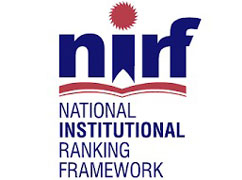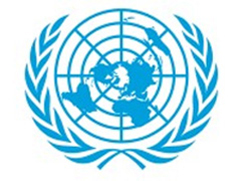
M. Tech in Data Science is a two year, four semester post-graduate programme with an objective to impart the knowledge on methodologies, techniques and concepts related to data science which includes mathematics, statistics, data warehousing, data mining, machine learning and visualization techniques. The main objective of this program is to provide one of the best post graduate education to students so that they can meet the growing regional, national and international need for highly qualified personnel in the fields of data science, natural language processing and artificial intelligence.
M. Tech in Data Science is a two year, four semester post-graduate programme with an objective to impart the knowledge on methodologies, techniques and concepts related to data science which includes mathematics, statistics, data warehousing, data mining, machine learning and visualization techniques. The main objective of this program is to provide one of the best post graduate education to students so that they can meet the growing regional, national and international need for highly qualified personnel in the fields of data science, natural language processing and artificial intelligence. The curriculum is framed by experienced academic and industrial expertise, by considering current as well as future demands of enterprises.
By looking at the multidisciplinary nature of data science, the curriculum offers many interdisciplinary subjects and also encourages students to do their dissertation in a multidisciplinary environment. The programme enables students to apply the knowledge of data science and computer science in the field of natural language processing, Big data as well as many emerging technologies for solving the real world problems encountered during day-to-day life. Students will get a good exposure to interpret, manage as well as evaluate the large amount of heterogeneous data in the real time environment. In addition to this the department offers dedicated labs and a research centre where students are encouraged to do their research under the supervision of a dedicated supervisor.
Data Science researchers work in academia or research institutions, advancing data science technologies and applications.
To get insightful information and support decision-making within companies, data scientists gather, purify, and evaluate data. Statistical and machine learning methods are frequently employed by them.
Data visualization approaches and interdisciplinary work leading to the start-up / entrepreneurship of a business.
A Data Science industry or profession is accompanied by immense salary ranges and earning potential.
Machine learning and artificial intelligence models encompass a range of data-driven tasks, including computer vision, natural language processing, image recognition, predictive modeling, and decision-making.
Produce evidence of passing the qualifying examination in English medium or have IELTS 6.0 with no sub-score below 5.5 or TOEFL (paper) 550, TOEFL (computer) of 213 or TOEFL (IBT) of 79 scores.
Intensive Certificate course in English Language (Full Time) conducted from March to May each year or One Semester Certificate course in English Language (Part Time) conducted after regular class hours from June to December.
Note: The International Student category fee structure is binding for the full duration of the programme and cannot be transferred /changed in between.
Candidates from the above listed categories having pursued Indian Educational qualification and who may have applied under the Indian States Category will have to pay the International Student Category Fee. The decision of the Admission committee is final.
Candidates seeking admission through International Student category (Foreign Nationals/PIO/OCI) will have a separate application process, with the following options to apply for any programme at Christ University.
Online Application form
Email ID for any clarifications: isc.admission@christuniversity.in
Students are welcome to apply under the Non-Resident Indian category for the programmes offered by the University. Application process is common for all category of applicants
Students who fall under any of the following classifications can apply under NRI Student category and be liable to pay the fees applicable to the category for the entire duration of the programme
Admission to all programmes is based on academic achievement and CHRIST (Deemed to be University) Selection Process. Candidates should submit the final results of class 12 on or before August 30th of the admission year.
Applicants must read through the Selection process, Fee Structure and other details under the preferred programme given on our website before proceeding with the application process.
For any queries at any given time during the application and admission process, you may contact us through the following Email ID’s:
The Office of Admissions,
CHRIST (Deemed to be University), Hosur Road,
Bengaluru – 560 029, Karnataka, INDIA
Phone
+91 92430 80800
+91 80 4012 9400
Email IDs
Indian candidates: admissions@christuniversity.in
NRI candidates: nri.admission@christuniversity.in
International: isc.admission@christuniversity.in
CHRIST (Deemed to be University)
Kanmanike, Kumbalgodu, Mysore Road,
Bengaluru – 560 074, Karnataka, INDIA
CHRIST (Deemed to be University),
Mariam Nagar, Meerut Road,
Delhi NCR Ghaziabad – 201003
Phone
1800-123-3212
CHRIST (Deemed to be University)
Hulimavu, Bannerghatta Road,
Bengaluru – 560 076, Karnataka, INDIA
Phone
+91 080 4655 1306
+91 080 4655 1306
Email
admissions.bgr@christuniversity.in
CHRIST (Deemed to be University)
Nagasandra, Near Tumkur Road,
Bengaluru 560 073, Karnataka, INDIA
CHRIST (Deemed to be University),
Christ University Road, 30 Valor Court, PO Dasve Lavasa, Mulshi, Pune – 412112, Maharashtra
Phone
1800-123-2009
Between: Monday to Friday: 09:00 AM to 04:00 PM,
Saturday: 09:00 AM to 12:00 PM
(Office remains closed on Sundays, Government Holidays and Any special events)
Note: Applications will open in December 2024 for the Selection Process in India
Once the results are announced Selected Candidates should pay their fee within 5 to 7 working days or as announced by the admissions office.
INSTRUCTIONS FOR SUBMISSION OF ONLINE APPLICATION FORM
Candidates are required to apply online only through the University website www.christuniversity.in No other means/mode of application will be accepted.
Candidates should thoroughly go through the programme eligibility criteria, etc. before applying.
All applicants are required to create a one-time registration ID to be able to apply for the programme of their choice. They can create the Login ID by Using the following link https://espro.christuniversity.in/Application/
OR
Through the program of your choice. After selecting the program, you will be redirected to the Registration for New Students Admission page.
Office of Admissions will communicate with the applicant only through the university website www.christuniversity.in under the link “Application Status” or click the link: https://appstat.christuniversity.in
Make sure to have all the original documents and a full set of black and white photocopies (xerox).
INSTRUCTIONS FOR SUBMISSION OF ONLINE APPLICATION FORM
Candidates are required to apply online only through the University website www.christuniversity.in No other means/mode of application will be accepted.
Candidates should thoroughly go through the programme eligibility criteria, etc. before applying.
All applicants are required to create a one-time registration ID to be able to apply for the programme of their choice. They can create the Login ID by Using the following link https://espro.christuniversity.in/Application/
OR
Through the program of your choice. After selecting the program, you will be redirected to the Registration for New Students Admission page.
Office of Admissions will communicate with the applicant only through the university website www.christuniversity.in under the link “Application Status” or click the link: https://appstat.christuniversity.in
INSTRUCTIONS FOR SUBMISSION OF ONLINE APPLICATION FORM
Candidates are required to apply online only through the University website www.christuniversity.in No other means/mode of application will be accepted.
Candidates should thoroughly go through the programme eligibility criteria, etc. before applying.
All applicants are required to create a one-time registration ID to be able to apply for the programme of their choice. They can create the Login ID by Using the following link https://espro.christuniversity.in/Application/
OR
Through the program of your choice. After selecting the program, you will be redirected to the Registration for New Students Admission page.
Office of Admissions will communicate with the applicant only through the university website www.christuniversity.in under the link “Application Status” or click the link: https://appstat.christuniversity.in
Make sure to have all the original documents and a full set of black and white photocopies (xerox).
RESULTS AND ADMISSION PROCESS
To process admission:
Make sure to have all the original documents and a full set of black and white photocopies (xerox).
1. Candidates who have passed B.Tech/B.E degree in any discipline(ckt or non-ckt branch) or an M.Sc in computer science[ for M.Sc in Maths or Statistics minimum one year of work experience] with minimum 55% aggregate.
2. Students appearing for their final degree examinations in March-June 2025 are also eligible to apply (Applicants who are in the final year of their studies in (B.Tech / B.E / M.Sc) should have secured 55% or above aggregate in all the Semesters / Years of Undergraduate Examinations conducted so far).
Students pursuing an International curriculum must note that eligibility is according to AIU stipulations.
Year | # Karnataka | Other Indian States | NRI | SAARC / AFRICA / PIO / OCI / ASEAN | Other Foreign Nationals | Time of Payment |
1 | 91,000 INR | 111,000 INR | 160,000 INR | 3,500 USD | 4,000 USD | Within seven days of declaration of the Selection Process Result |
2 | 91,000 INR | 111,000 INR | 160,000 INR | 3,500 USD | 4,000 USD | On or before March 15, 2026 |
# The fee for Karnataka domicile students, as indicated in the table, is the actual fee payable and excludes the scholarship amount.
It is to be noted that though the fee is fixed for two years, there may be a periodic nominal increase to meet the rise in costs.
(The above condition is not applicable to NRI and candidates applied under NRI Category).
PO1: Scholarship of Knowledge: Acquire in-depth knowledge of specific discipline or professional area, including wider and global perspective, with an ability to discriminate, evaluate, analyze and synthesize existing and new knowledge, and integration of the same for enhancement of knowledge.
PO2: Critical Thinking: Analyze complex engineering problems critically, apply independent judgment for synthesizing information to make intellectual and/or creative advances for conducting research in a wider theoretical, practical and policy context.
PO3: Problem Solving: Think laterally and originally, conceptualize and solve engineering problems, evaluate a wide range of potential solutions for those problems and arrive at feasible, optimal solutions after considering public health and safety, cultural, societal and environmental factors in the core areas of expertise.
PO4: Research Skill: Extract information pertinent to unfamiliar problems through literature survey and experiments, apply appropriate research methodologies, techniques and tools, design, conduct experiments, analyze and interpret data, demonstrate higher order skill and view things in a broader perspective, contribute individually/in group(s) to the development of scientific/technological knowledge in one or more domains of engineering.
PO5:. Usage of modern tools: Create, select, learn and apply appropriate techniques, resources, and modern engineering and IT tools, including prediction and modeling, to complex engineering activities with an understanding of the limitations.
PO6: Collaborative and Multidisciplinary work: Possess knowledge and understanding of group dynamics, recognise opportunities and contribute positively to collaborative-multidisciplinary scientific research, demonstrate a capacity for self-management and teamwork, decision-making based on open-mindedness, objectivity and rational analysis in order to achieve common goals and further the learning of themselves as well as others.
PO7: Project Management and Finance: Demonstrate knowledge and understanding of engineering and management principles and apply the same to one’s own work, as a member and leader in a team, manage projects efficiently in respective disciplines and multidisciplinary environments after consideration of economic and financial factors.
PO8: Communication: Communicate with the engineering community, and with society at large, regarding complex engineering activities confidently and effectively, such as, being able to comprehend and write effective reports and design documentation by adhering to appropriate standards, make effective presentations, and give and receive clear instructions.
PO9: Life-long Learning: Recognise the need for, and have the preparation and ability to engage in life-long learning independently, with a high level of enthusiasm and commitment to improve knowledge and competence continuously.
PO10: Ethical Practices and Social Responsibility: Acquire professional and intellectual integrity, professional code of conduct, ethics of research and scholarship, consideration of the impact of research outcomes on professional practices and an understanding of responsibility to contribute to the community for sustainable development of society.
PO11: Independent and Reflective Learning: Observe and examine critically the outcomes of one’s actions and make corrective measures subsequently, and learn from mistakes without depending on external feedback.
Duration : 2 years
Address
Bangalore Kengeri Campus
Kanmanike, Kumbalgodu, Mysore Road, Bangalore, Karnataka – 560074
Telephone
080 6268 9800 / 9828 / 9820 / 9800



